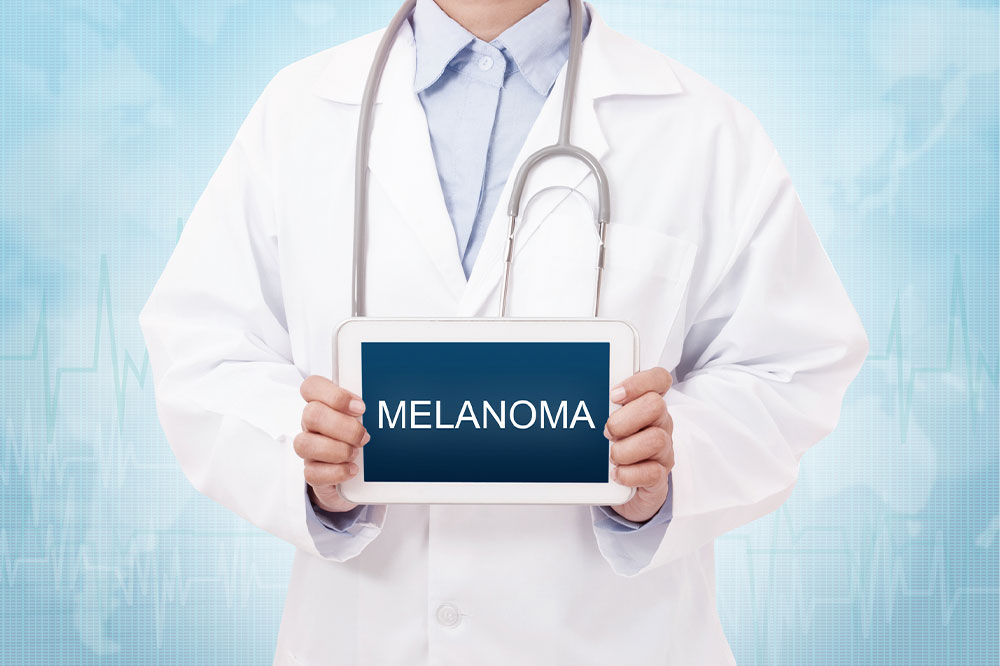3 effective tips for dealing with melanoma

Melanoma is a type of skin cancer that can develop into a serious condition as it tends to spread quickly. It accounts for about 1% of all skin cancers in the country. The Skin Cancer Foundation suggests that 197,700 melanoma cases will be detected in 2022. However, it is a highly curable disease when detected in the early stages. Further, the disease can be managed through the following treatment options, food choices, and remedies:
Choosing the right treatment options
The disease is also known as black tumor and is an invasive kind of cancer. When detected, one should get a proper diagnosis to initiate the treatment as quickly as possible, as early detection and treatment can help cure the disease. It is imperative to follow the healthcare expert’s advice in this regard. They may recommend the following option:
Opdivo: This treatment is recommended for adults with advanced melanoma. It is prescribed to treat melanoma, cancer of the lungs, kidneys, lymphocytes, urinary tract and bladder cancer, head and neck, colon or rectum, esophagus, and stomach. This is recommended for patients affected by melanoma that has advanced or spread to other organs. Here, surgical methods would have been ruled out. The option is administered to patients intravenously. OPDIVO ® contains nivolumab, which attaches to the PD-1 receptors on the T cells found in the human immune system. In so doing, nivolumab prevents the cancer cells from deactivating the T cells, thereby strengthening the immune system strong to fight the cancerous cells.
Melanoma spreads fast and can reach other organs of the body. In such cases, the doctor might suggest other courses of treatment to target cancer cells in these organs.
Making better food choices
The next course of action in managing melanoma and its symptoms is to consume food that contains minerals like zinc and vitamins C, E, and A, along with other essential nutrients like polyphenols, selenium, beta carotene, and lycopene. Here is what should be added to meals:
Foods with vitamin C: This is an essential nutrient for melanoma patients because of its antioxidant properties. Vitamin C helps fight free radicals to prevent damage to cells. Sources of the vitamin are leafy vegetables like spinach, kale, collard greens, bell peppers, broccoli, lime, and Brussels sprouts. Additionally, people affected by the disease must also opt for fruits like oranges, raspberries, and strawberries.
Sources of vitamin E: This vitamin is also known for its antioxidant properties. Studies show that vitamin E can inhibit the growth of melanoma cells. Natural sources of this nutrient are nuts like almonds and sunflower seeds.
Foods rich in vitamin A: Eating pumpkins and broccoli, which are rich sources of vitamin A has been found to reduce the risk of developing cancers like melanoma.
Legumes: These foods are a good source of zinc that strengthens the immune system. Black beans and chickpeas are ideal additions to meals.
Lycopene-rich foods: This is a natural compound beneficial for the body due to its antioxidant properties. Lycopene protects the skin from UV damage. Sources of lycopene include fruits like tomato, watermelon, papaya, guava, apricots, and pink grapefruit.
Foods rich in omega 3s: Omega 3 fatty acids exhibit anti-inflammatory properties. Fatty fish, flax seeds, and nuts like walnuts are rich in these healthy fats.
Sources of beta carotene: This carotenoid gets converted into vitamin A, which reduces the risk of developing cancers like melanoma. Carrots, apricots, and sweet potatoes are rich in beta carotene.
Tea: Green and black tea are sources of polyphenols that can inhibit the growth of cancerous cells.
Selenium-rich foods: Melanoma patients should add Brazil nuts to their meals as they are rich sources of selenium. Several studies show that selenium helps protect the body from cancer.
Trying natural remedies
Certain at-home natural remedies can help one deal with disease symptoms, however, they should never be considered as alternatives to conventional treatment. One should also speak to their healthcare provider before using any such remedy. Some of the remedies known to help patients with melanoma are:
Extra-virgin coconut oil: Applying coconut oil to the skin can help keep the spread of the disease under control. The oil is a rich source of antioxidants and fatty acids called lauric acid. Both these components are known to inhibit free radical damage and the growth of melanoma cells.
Essential oils: Concentrated plant extracts can be inhaled or applied to the skin to reduce the side effects of your treatment. Studies are yet to prove if these natural oils can directly impact the progression of the disease.
Frankincense oil: This oil has been studied extensively and is known to induce cytotoxicity. This anti-tumor property of the oil is known to help reduce the growth of cancerous melanoma cells.
Black raspberry seed oil: Rich in antioxidants, black raspberry oil enhances immunity that can, in the long run, curb the progression of skin cancer in the body.
Apart from opting for treatment options, patients should practice caution and seek expert advice regarding what they should eat and use on their skin. Further, while undergoing treatment, one should limit their UV light exposure, eat healthier, and exercise to help with recovery and avoid damage to the skin.



